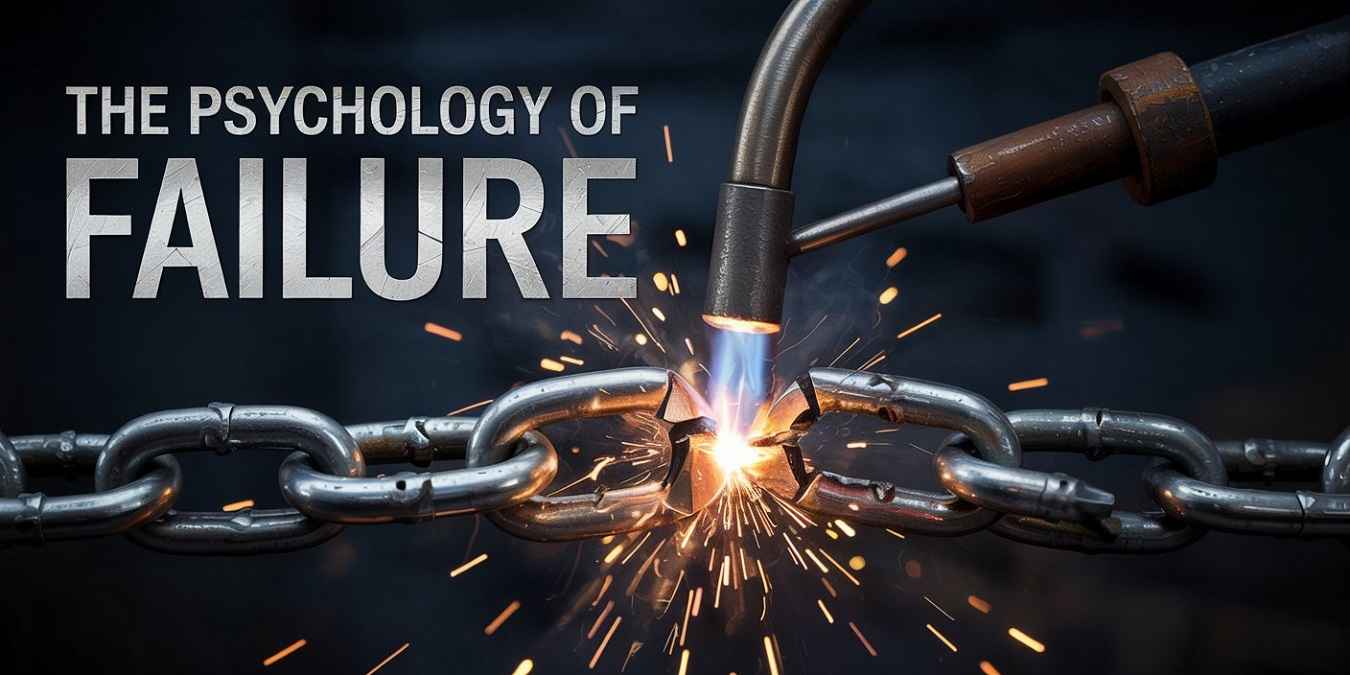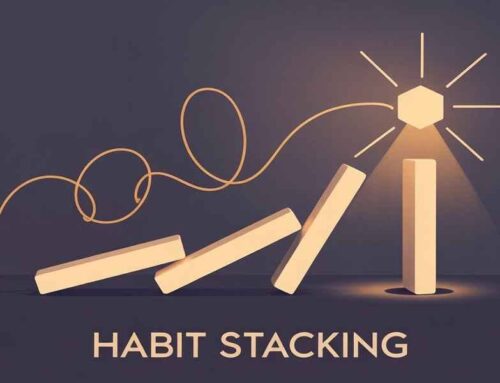
The Psychology of Failure in High-Pressure Jobs
Picture this: You’re standing at the edge of a critical moment in your career. Maybe you’re a surgeon prepping for a life-saving operation, a lawyer defending a make-or-break case or an entrepreneur pitching to investors who hold your startup’s fate in their hands. Then, despite your best efforts, it all falls apart.
The weight of failure crashes down and suddenly, you’re questioning everything. Sound familiar? If you’ve ever felt this in your high-pressure job, you’re not alone. Understanding the psychology of failure can be your lifeline, not just to survive these moments, but to come out stronger.
In high-pressure jobs, failure isn’t a rare guest; it’s a frequent visitor. Let’s dive into why it hits so hard, how it shapes us and what you can do to turn it around.
What Does Failure Mean in High-Pressure Jobs?
Failure isn’t a one-size-fits-all concept. In high-pressure jobs, think medicine, law, finance or entrepreneurship, it can mean anything from a missed deadline to a mistake with life-altering consequences.
The stakes are higher here than in most places. When you fail, it’s not just about you. It could affect patients, clients, employees or entire companies. That’s a lot to carry.
The psychology of failure kicks in the moment you realize things didn’t go as planned. Your stomach drops. Your mind races with “What Ifs.” Maybe you feel shame, fear or a dent in your confidence.
These reactions aren’t random, they’re rooted in how our brains process setbacks. Failure triggers a stress response, releasing cortisol that puts you on edge. It’s your body’s way of saying, “This is bad. Fix it!” But in high-pressure jobs, where perfection is often the expectation, that stress can linger, making every misstep feel like a personal defeat.
Have you ever noticed how failure sticks with you longer than success? That’s because our brains are wired to focus on threats. It’s an old survival trick, but it doesn’t always serve us well in modern careers. The good news? You can rewrite that script.
Why High-Pressure Jobs Make Failure Feel Bigger
High-pressure jobs come with a spotlight. Whether it’s a boss breathing down your neck, a client demanding results or society expecting you to “Have it all together,” the pressure is relentless. This environment doesn’t just make failure possible, it makes it feel catastrophic.
Think about it. In a low-stakes gig, a mistake might mean a quick apology and a redo. But in high-pressure jobs, the stakes are steeper. A surgeon’s error could cost a life. A financial trader’s misstep could tank a portfolio. An entrepreneur’s failed launch could sink years of work. Add external expectations, like perfectionism from your industry or culture and suddenly, failure isn’t just an event. It’s a judgment.
This pressure can trap you in a cycle. You fear failing, so you overthink. You overthink, so you hesitate. You hesitate and, yep, you’re more likely to mess up. It’s exhausting, right? But understanding this dynamic is the first step to breaking free.
The Emotional Toll: Why Failure Hurts
Let’s be honest: Failure stings. In high-pressure jobs, it can feel like a punch to the gut. Why does it hit so hard? Part of it is biology. When you fail, your brain treats it like a threat, flooding your system with stress signals. Your heart races, your palms sweat and your mind spirals.
But there’s a deeper layer. In these roles, your job often becomes your identity. If you’re a doctor, you’re not just doing medicine, you’re a healer. If you’re an entrepreneur, you’re a visionary. So when failure strikes, it’s not just a work problem, it’s personal too. You might wonder, “Am I still good enough?” That’s the psychology of failure at play: it challenges how you see yourself.
Ever felt like you’re the only one struggling? You’re not. Studies show that professionals in high-pressure fields often battle anxiety and self-doubt after setbacks. The key is recognizing that these feelings don’t define you, they’re just part of the ride.
Coping with Failure: Practical Steps for You
So, you’ve failed. Now what? How do you get back up when the pressure’s still on? Here are some tools to help you navigate the fallout:
- See failure as a teacher. What if that setback wasn’t a dead end but a lesson? Ask yourself: What went wrong? What can I tweak next time? Reframing it this way takes the sting out and gives you control.
- Give yourself a break. You wouldn’t berate a friend for messing up, so why do it to yourself? Self-compassion isn’t weakness, it’s strength. Tell yourself, “I’m human. This happens.”
- Lean on someone. Talk to a mentor, a coworker or a friend who gets it. Sharing the load can lighten it. Who’s your go-to when things get tough?
- Break it down. Big goals can overwhelm you after a failure. Set smaller, doable ones instead. Each step forward rebuilds your momentum.
- Breathe through it. Mindfulness, think meditation or a few deep breaths, can calm that racing mind. It’s simple but powerful.
These aren’t quick fixes. They’re habits that build over time, helping you face failure without crumbling.
Constructive vs. Destructive Failure: A Mindset Shift
Here’s a twist: Not all failure is bad. In high-pressure jobs, it can go one of two ways. Constructive failure is the kind that pushes you forward. It’s the missed shot that improves your aim, the rejected proposal that sharpens your pitch. Destructive failure? That’s when you let it sink you, when you quit, freeze or stop taking risks.
Consider Thomas Edison. He once said, “I have not failed. I’ve just found 10,000 ways that won’t work.” That’s constructive failure in action. He didn’t see setbacks as stops; he saw them as steps. In your career, adopting this view can turn a loss into a launchpad. What’s one failure you could reframe right now?
Entrepreneurship: Mastering Repeated Setbacks
If high-pressure jobs are a battlefield, entrepreneurship is a war zone. Nine out of ten startups fail. That’s not a typo, 90%. Entrepreneurs don’t just face failure once; they face it over and over. A pitch flops. Funding dries up. A product bombs. Yet, the ones who make it don’t give up. Why?
Take a look at the greats. Steve Jobs got booted from Apple, his own company, before returning to revolutionize it. Elon Musk nearly lost everything with Tesla and SpaceX before they soared. These aren’t flukes. They’re proof that coping with repeated setbacks is a skill you can learn.
How do you do it? First, expect failure. It’s not “If” but “When.” Second, analyze it. What broke? How can you fix it? Third, keep a support network, mentors, peers or even a journal, to process the lows. Finally, focus on the long game. One failure doesn’t end your story unless you let it. In competitive fields like this, resilience isn’t optional, it’s essential.
Building Resilience: Your Armor Against Failure
Resilience is your shield in high-pressure jobs. It’s not about dodging failure; it’s about bouncing back when it hits. And guess what? You can build it. Here’s how:
- Embrace a growth mindset. Psychologist Carol Dweck says it’s about believing you can improve with effort. See challenges as chances to learn, not threats to avoid.
- Set smart goals. Aim big, but keep it real. Unrealistic targets invite failure; achievable ones build confidence.
- Celebrate the little stuff. Did you nail a presentation after bombing the last one? That’s a win. Savor it.
- Protect your headspace. High-pressure jobs can drain you. Exercise, hobbies or just a quiet night off can recharge you.
- Learn from others. Read about people who’ve been where you are. Their stories remind you that failure’s universal and surmountable.
Resilience doesn’t mean you won’t feel the hit. It means you’ll get up faster each time.
Failure and Mental Health: Let’s Talk About It
Failure doesn’t just test your skills, it tests your mind too. In high-pressure jobs, the constant push can lead to anxiety, burnout, even depression. Ever felt that knot in your chest that won’t go away? That’s your mental health waving a red flag.
Too often, we hide it. Admitting you’re struggling feels risky in fields that prize toughness. But ignoring it can spiral into bigger problems. If failure’s weighing you down, reach out. A therapist, a support group or a trusted confidant can make a difference. You’re not weak for needing help, you’re smart for seeking it.
A Culture That Embraces Failure
Your workplace matters too. If failure means punishment, good luck taking risks or growing. But in a culture that sees mistakes as part of the process, you’re free to experiment and learn. If you lead a team, try this: Share your own flops. Encourage honest talks about setbacks. Reward effort, not just results. It’s a game-changer for everyone.
Wrapping Up: Failure’s Not the End
Failure in high-pressure jobs is tough, no question. But the psychology of failure shows us it’s not a death sentence, it’s a detour. Whether you’re stitching patients, arguing cases or building businesses, setbacks are part of the deal. What matters is how you respond. Reframe it. Learn from it. Keep going. You’ve got more in you than you think.
Call to Action
Faced failure lately? How did you handle it? Drop your story in the comments, I’d love to hear it. Every stumble’s a chance to stand taller next time.
FAQs: The Psychology of Failure in High-Pressure Jobs
Q: What are high-pressure jobs?
A: High-pressure jobs are careers where the stakes are exceptionally high, such as medicine, law, finance or entrepreneurship. These roles often involve significant responsibility, tight deadlines and the potential for serious consequences if mistakes are made.
Q: How does failure affect professionals in high-pressure jobs?
A: Failure in these roles can lead to intense stress, self-doubt and a sense of personal inadequacy. The high stakes and public nature of these jobs can amplify these feelings, making recovery more challenging.
Q: What are some effective ways to cope with failure in high-pressure jobs?
A: Coping strategies include reframing failure as a learning opportunity, practicing self-compassion, seeking support from colleagues or mentors and breaking down large goals into smaller, manageable tasks.
Q: How can I build resilience against failure in my career?
A: Building resilience involves adopting a growth mindset, setting realistic goals, celebrating small victories and maintaining a healthy work-life balance. Learning from others who have overcome similar challenges can also be inspiring.
Q: Is it normal to feel overwhelmed by failure in high-pressure jobs?
A: Yes, it’s completely normal. The pressure and expectations in these roles can make failure feel more significant, but it’s important to remember that everyone experiences setbacks and that they don’t define your worth or capabilities.
Q: How can workplace culture influence the impact of failure?
A: A supportive workplace culture that views mistakes as part of the learning process can significantly reduce the negative impact of failure. Encouraging open discussions about setbacks and focusing on effort rather than just results can foster a healthier environment.














